Whole Green Foods’ $2m bridging round geared to tackle global food waste
Specialising in nutrient extraction technology to convert food waste into useable ingredients, has paid off for Whole Green Foods. The Western Australian startup is now raising a $2 million bridging round, with processing expansion plans and heavyweight partnerships on the horizon, such as Simplot and Ferrero – set to catapult success.
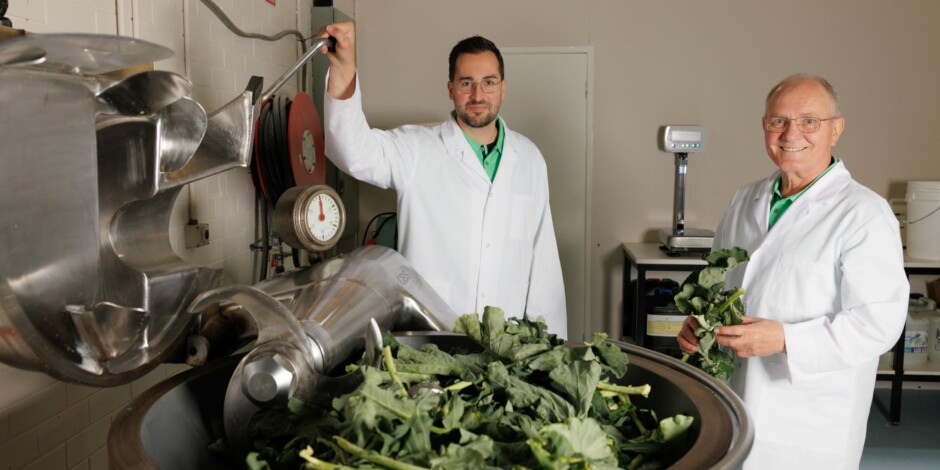 Whole Green Foods Co-Founders Nick Stamatiou and Cedric Cross at their nutrition lab in Perth, Western Australia. Photography by Fox and Wildling
Whole Green Foods Co-Founders Nick Stamatiou and Cedric Cross at their nutrition lab in Perth, Western Australia. Photography by Fox and Wildling
In Australia alone, wasted food costs the economy around $20 billion each year. Up to a quarter of all vegetables grown never leave the farm, and the equivalent of the water in three Sydney Harbours is used to grow food that is thrown out.
With the goal of reducing global food wastage and its growing impact on human health and the environment, Whole Green Foods (Whole) has developed its proprietary WINXTM technology – Whole Ingredient Nutrient Extraction. The unique chemical free processing solution, enables cost-effective and large-scale production of plant-based products, using produce that would otherwise be wasted, while maintaining the nutritional value of the original ingredients.
Whole is attracting global interest from A-list food manufacturers lining up to trial the WINX technology, including Simplot, Sanitarium, Unigrain, Noumi, and Kerry, alongside instrumental collaborations with the University of Western Australia (UWA) and the CSIRO, under its Kickstarter Program.
“I find it staggering that a third of all food that’s produced and processed in the world is not consumed by humans. That’s just not sustainable,” said Nick Stamatiou, Co-Founder of Whole Green Foods based in Perth, Western Australia.
Processing the whole ingredient
“There’s plenty going on in the alternative protein space but no-one is doing what Whole is doing, which is to preserve the nutrition and flavour in wasted or spoiled produce so that it can be used in the food ingredient and manufacturing process.”
RELATED: Animal-free fermented fats give alternative proteins a kick of flavour
Before incorporating Whole in 2020, Nick and his co-founders, technology and food processing expert Cedric Cross and commercialisation and strategy advisor, Ivan Gustavino, spent three years designing, developing and de-risking the underlying technology – that’s now fully ready for commercialisation.
Whole’s $2m bridging round will support the completion of key analysis, business model validation and engagement with key partners. Early-stage investors with interest in foodtech, nutrition and waste reduction, along with farmers with access to horticulture waste streams are encouraged to submit expressions of interest, by 31 August 2022. Learn more, via the growAG. commercial opportunity here.
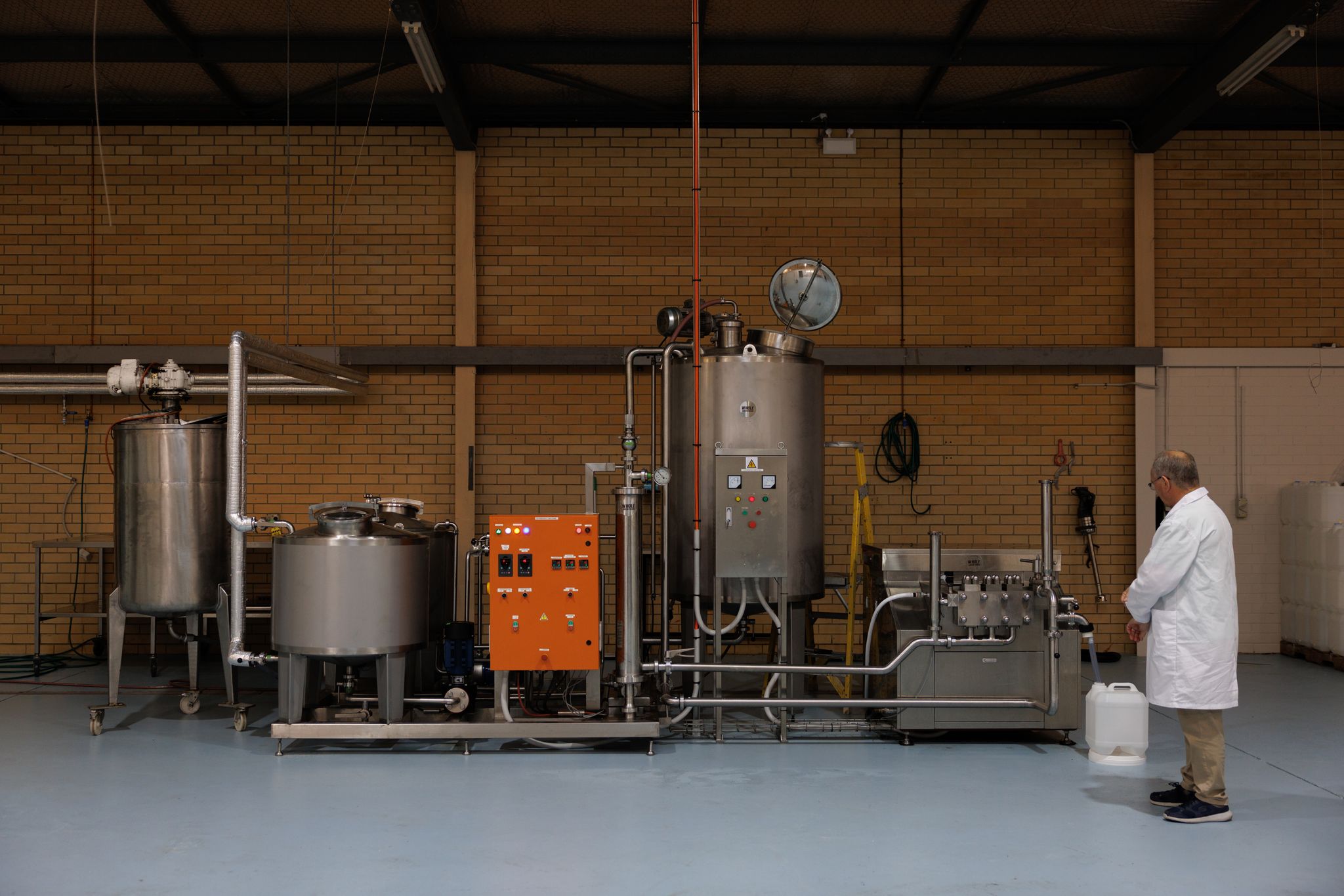
The advantage of WINX technology lies in its ability to efficiently process the ‘whole’ ingredient.
“We take the cereal, legume or fruit or vegetable and reduce it to a small enough particle size that we can introduce it to our soaking tank, in a wet process where it’s typically mixed with water but sometimes oil or alcohol,” explained Nick.
“The magic happens in the final steps where we use ultra-high pressure to achieve cell bursting, which releases all the nutrition and flavour and reduces the particles down to around 20 microns. Then it can be used in anything from beverages to flavours and ingredients.”
RELATED: Low-cost green hydrogen technology for Australian farmers
And the process is all input-agnostic, Nick explained. Boasting a highly-modular design and low-cost solution, aimed at targeting major sources of agricultural waste.
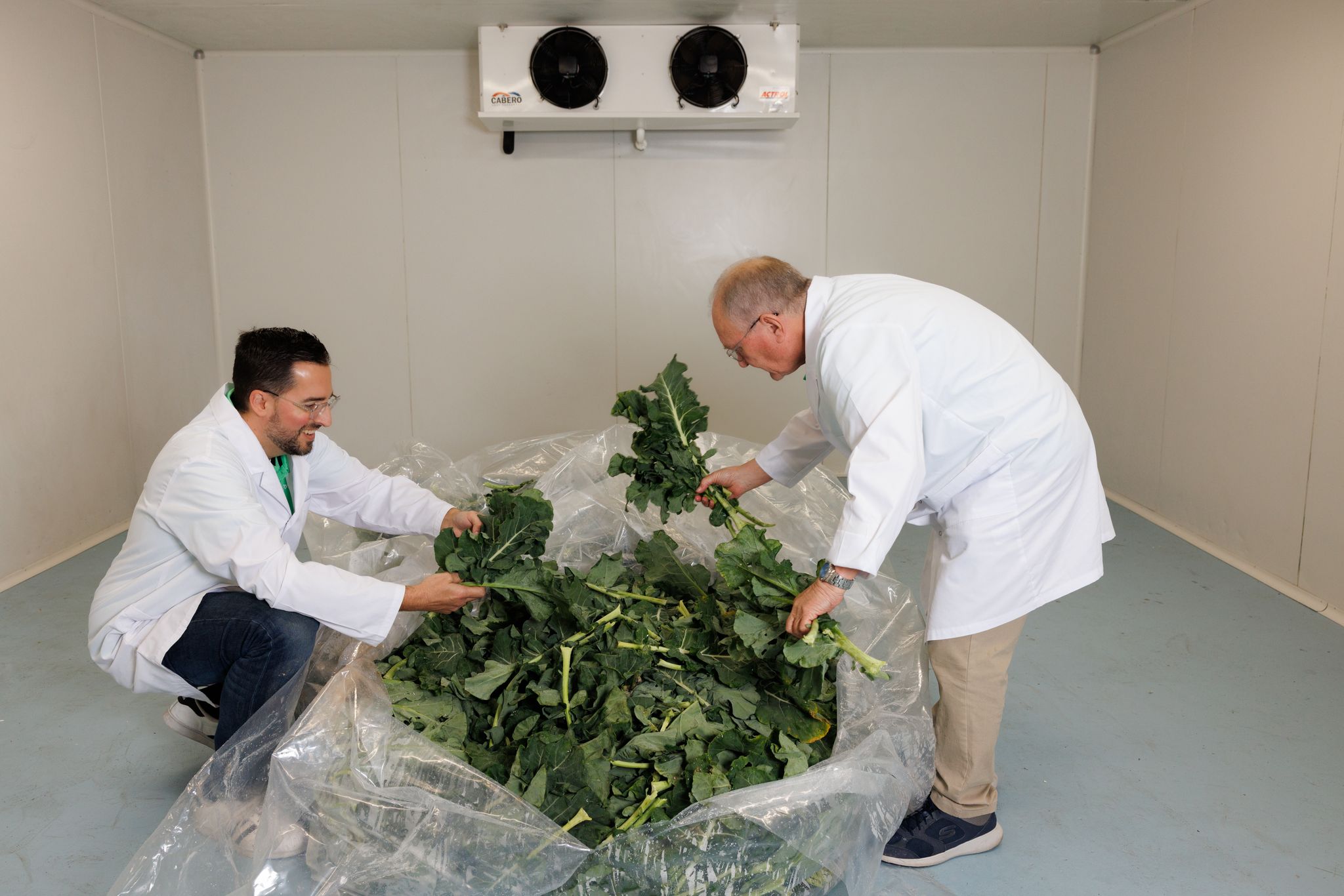
Cost savings through minimal inputs
“That’s where much of the cost savings are derived. You can put literally anything through our ‘black box’ [the WINX technology] so from a capital expenditure perspective you’ve got massive savings from the get-go because you’re only having to buy one machine.
“We’re essentially a cold process. We don’t use heat which is typically where a lot of operational expenditure occurs, and there is no processing waste, so you don’t have the costs of disposal.”
RELATED: Supply chain innovation, Coolsan tackles food waste challenge
Another value proposition is that WINX is essentially a preserving technology for its potential users, such as ingredient and food manufacturers and primary producers. The resulting ingredients are shelf-stable, removing the time pressure on growers around picking and selling produce within a short window of time.
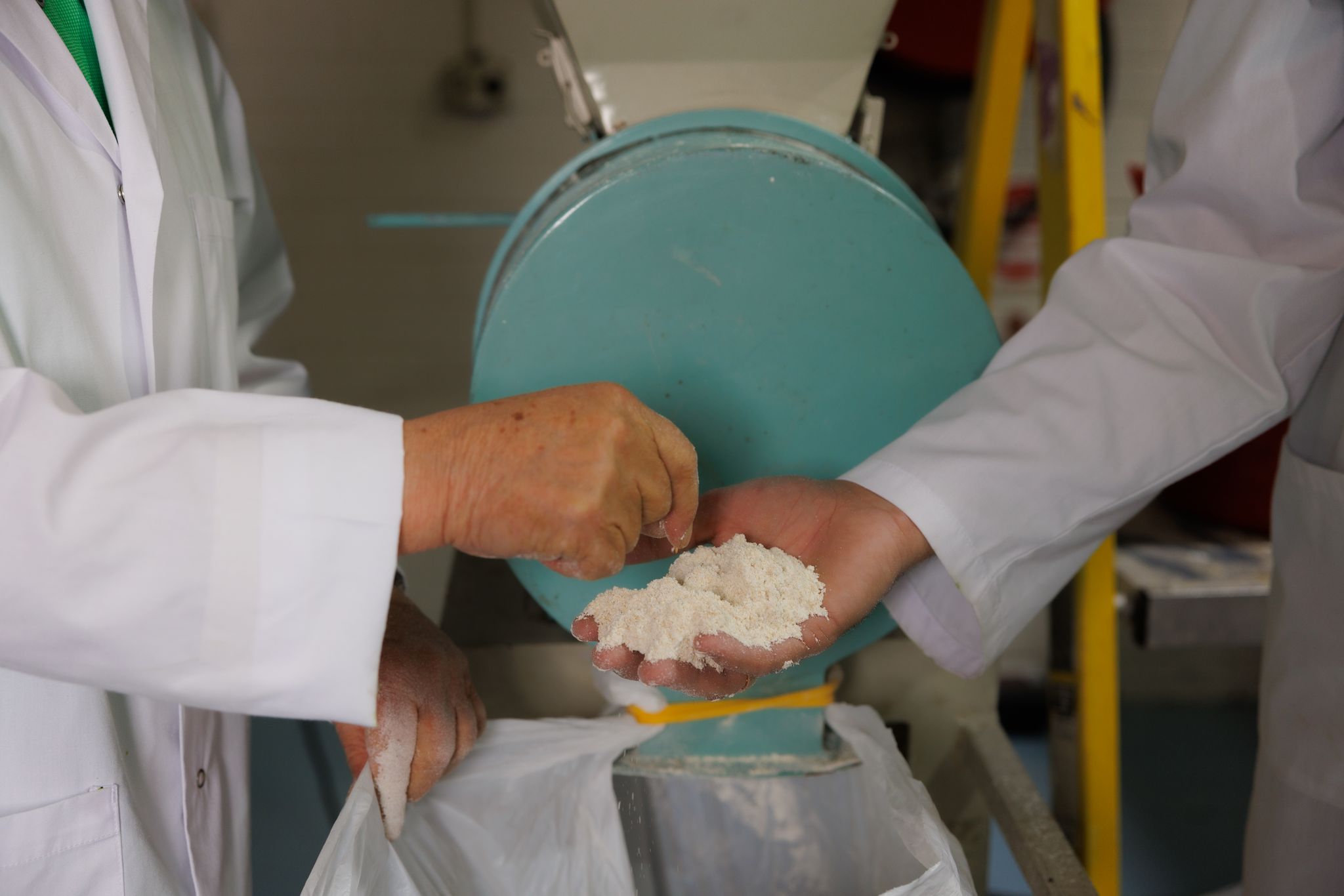
Being selected as one of six startups to participate in the AgriFutures evokeAG. 2022 Startup Network Program, has been a key step for Whole in building its networks, capability and supporting on-farm adoption.
“Our initial goal with the Startup Network was to improve our understanding of waste streams. We’ve got this amazing technology but limited exposure to the growers and other primary sources of waste, so it’s a great way for us to get out there in the field,” said Nick.
RELATED: Six agrifood startups selected for AgriFutures evokeAG. 2022 Startup Network
Trials produce new flavours, ingredients
Whole’s business proposal is to license its technology to other businesses. In February 2022, the startup opened its first small-scale (700m2) research and development facility at UWA, in Mount Claremont, housing the WINX prototype – with a production capacity of 15,000 litres per day – where customers are invited to try before they buy.
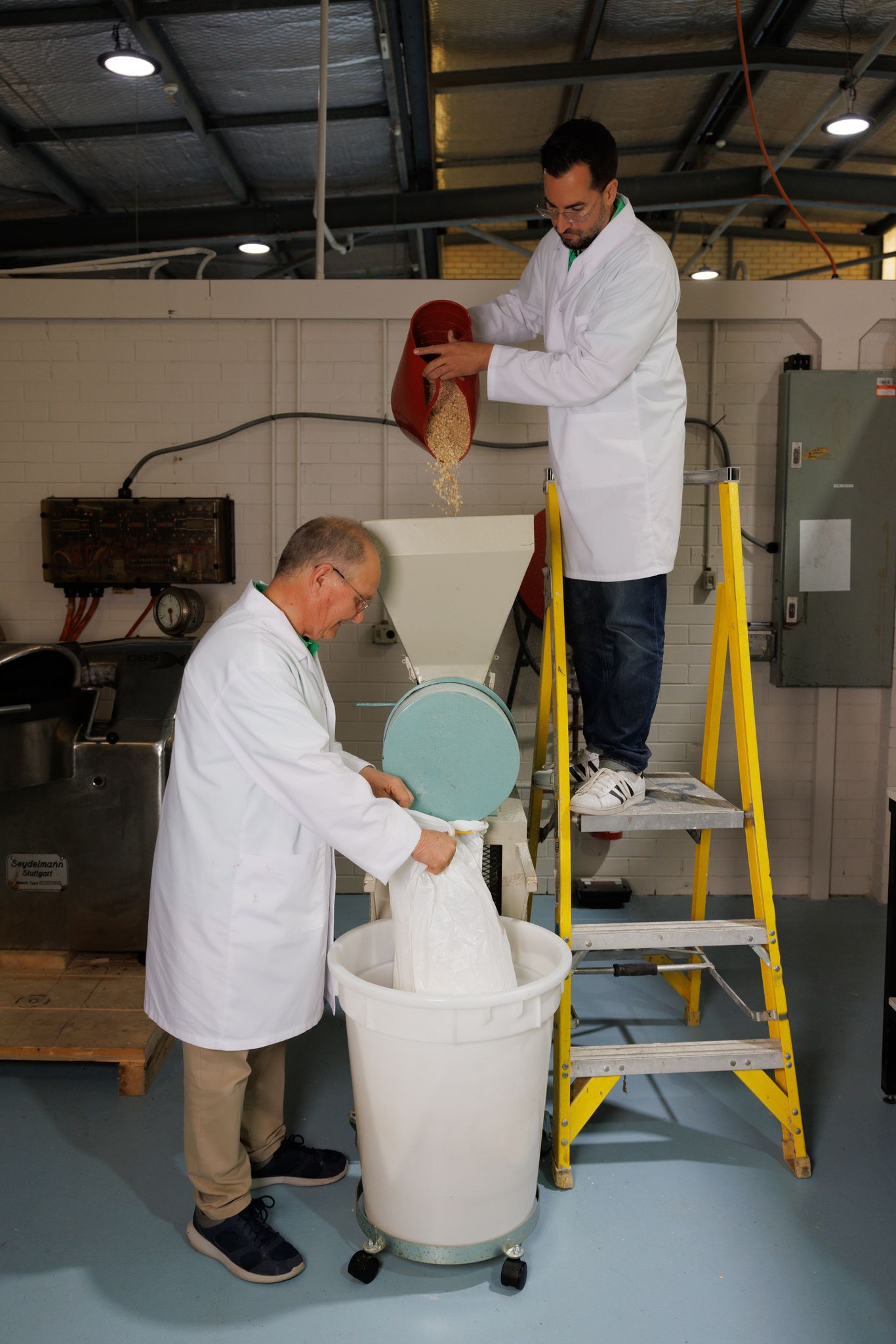
“At our nutrition lab, customers come with an idea for an application or a flavour and our team work with them over a couple of weeks to prove the concept and to provide more predictive capability, so that’s the exciting stuff for us,” explained Nick.
“Simplot Australia has been doing some preliminary tests on broccoli stems, which have very good nutritional properties and could be blended into sauces or packaged meals.
“And we can create flavours that no one has ever tried before. We had butternut pumpkin, pineapples and oranges that were going to waste so we chucked it all in the machine, skins, pips and all, and what came out the other end you would swear was mango!”
RELATED: Bee tracker measures real-time pollination, supercharging yield and profit
New customers from Future Food Asia awards
Nick sees potential in bringing farmers up the value chain through smart partnerships or even joint ventures, so that they can turn surplus crops into ingredients and set up networks within the food industry.
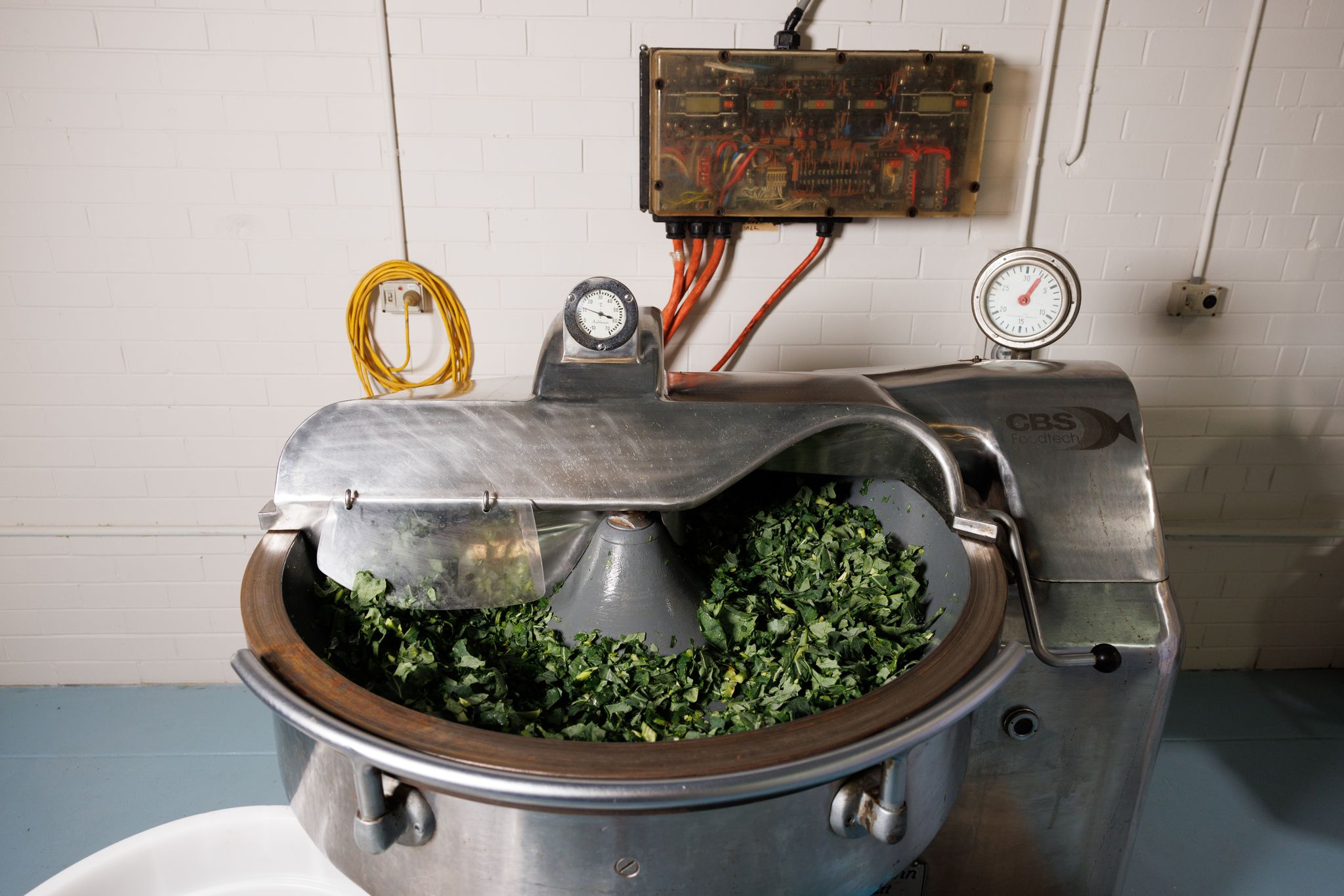
Whole is also attracting plenty of interest from global investors after selection as one of ten finalists in the 2022 Future Food Asia awards, which recognise leading agrifood tech startups across the Asia Pacific.
Nick said they’ve been approached by Ferrero, who make Nutella and Kinder, and Nestlé UK, looking at how they can produce low sugar confectionery and chocolate.
Whole is set to meet several short-term milestones in 2022, including closing its $2m bridging round by 31 August 2022, selecting two or three key ingredients to focus the technology on. Expanded processing capability is also in the pipeline.
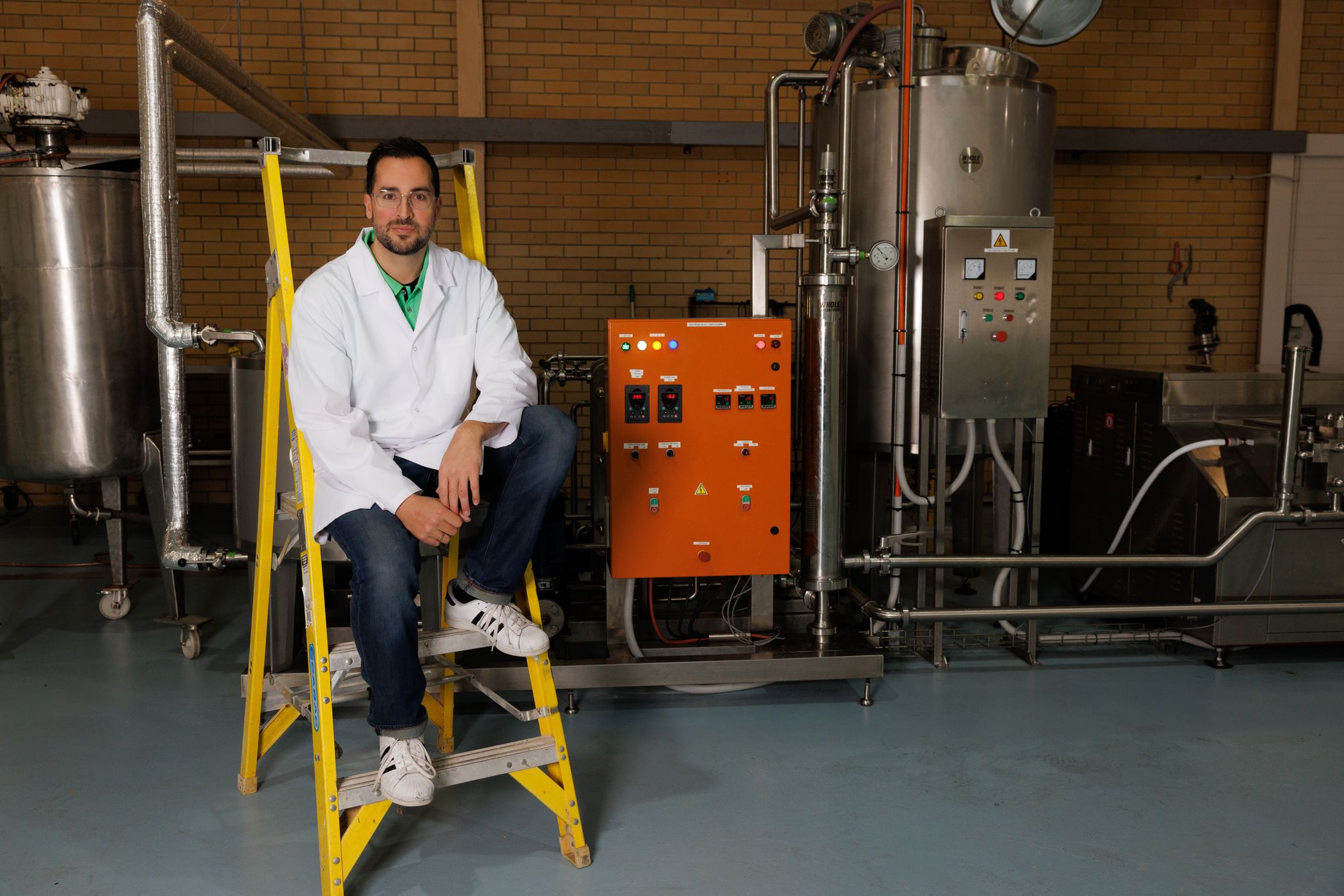
“We’re looking at putting a secondary processing line in a food innovation precinct which is in the Peel region, about an hour south of Perth. And through our partnerships with CSIRO, we’re exploring the idea of setting up a processing facility on the East Coast as well.
RELATED: Main Sequence Ventures seeks ‘Feed 10b people’ innovations
“In the last six months the discussions around food waste have definitely increased. There is generational change going on where young people are seeking out clean labels and supply chain transparency, and food manufacturers are very conscious of that,” said Nick.
Learn more about Whole’s $2 million commercial opportunity, via the AgriFutures growAG. platform here. Expressions of Interest close 31 August, 2022.
Enjoyed this story? Want to learn more about the Asia Pacific region’s innovative agrifood tech ecosystem? Sign up for our newsletter here and receive fresh stories about global leaders, farmers, startups and innovators driving collaborative change.
